Good morning!
Greetings in the name of the father, the son, and the Holy Spirit.
So let’s not get tired of doing what is good. At just the right time we will reap a harvest of blessing if we don’t give up. (Galatians 6:9)
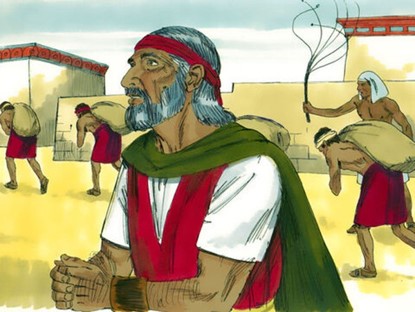
Have you ever had a boss who asked you to perform an unreasonably impossible task? Many of us probably say yes.
Then have you done the task joyfully or grumbling while complaining?
One more question: if your boss asks again, then did you perform the unreasonably impossible task again because your boss asked? If you did, you are a really patient person.
Then if your boss asks again to do the same unreasonably impossible task? Probably there would be very few people to do the same task for the boss. How about doing it more than three times? It would be almost unthinkable.
Let’s add one more factor to the top of the above task. Before your boss sends you to do – the unreasonably impossible task, your boss also tells you that you will surely fail to complete the task. In other words, your boss predicts your sure failure even before starting the task that is impossible to your eyes. Then how many people will go and do the task? It would be very hard to find a person to do the crazy job for the boss. Many of us would think, “Why does our boss send me although my boss is sure about the outcome – my failure? Is my boss crazy or what?”
Moses was the rare person who always said “Yes” to God when God sent Moses to Pharaoh. Then Moses went to Pharaoh. Surely Moses heard what God told Moses: “You would surely fail because I, God, let Pharaoh harden his heart.” Yes, Moses knew God had the power to make Pharaoh’s heart soft to listen to Moses, but God said He would not.
By the way, how many times had God sent Moses? Nine times already. Moses obediently followed God’s command, although he knew exactly the negative outcome. Moses faithfully did it without complaining to God. Moses had humanly impossible patience and humility before God. Thus, the Bible says,
Now Moses was a very humble man, more humble than anyone else on the face of the earth. (Numbers 12:3)
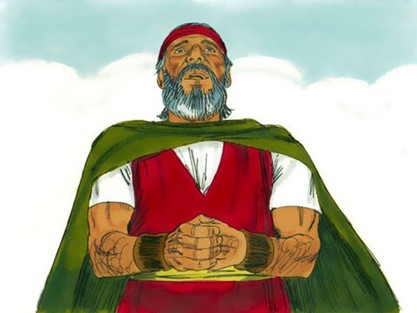
Was Moses born as such a patient and humble person? No, Moses was not such a person, but God made Moses such a person who had incredible humility. Such a faithful character did not come easy. It took 80 years. Yes, eighty years, a long period.
Throughout 80 years of the time with God, Moses was always an “A” student? No. Moses had failed from time to time. Here is the biggest and most memorable failure. It happened at the age of forty, which costed his princeship of Egypt. As a result, he had to flee and live in the Midian wilderness and spent another forty years. The latter forty years were more painful to Moses. From a human point of view, it was the time to get reduced and become nothing.
The first forty years made Moses the towering prince in Egypt, and the latter him an unknown poor shepherd roaming around the wilderness of Midian. However, the latter forty years shaped Moses into a person who could do God’s “unreasonably contradicting seemingly impossible” command nine times faithfully.
For the nine times, Pharaoh answered no by hardening his heart, as God predicted before sending Moses, but Moses had never complained. Whenever God sent Moses to Pharaoh to deliver God’s message, Moses gladly and willingly went to Pharaoh again and again. Yes, Moses knew the negative outcome, and it was not what he wanted to see – freeing Israelites from the bondage of slavery in Egypt.
Throughout the process, was God indifferent to Moses? No. God carefully watched Moses and everything happening with and in Moses, such as his thoughts and mind. God knew what Moses wanted in his heart. God knew why Moses risked his princeship at forty. Freeing the Israelites was his lifelong dream.
Here is the heartbreaking story of Moses. One day when Moses was forty years old, he decided to visit his relatives, the people of Israel. He saw an Egyptian mistreating an Israelite. So Moses came to the man’s defense and avenged him, killing the Egyptian. Moses assumed his fellow Israelites would realize that God had sent him to rescue them, but they didn’t.
The next day he visited them again and saw two men of Israel fighting. He tried to be a peacemaker. ‘Men,’ he said, ‘you are brothers. Why are you fighting each other?’
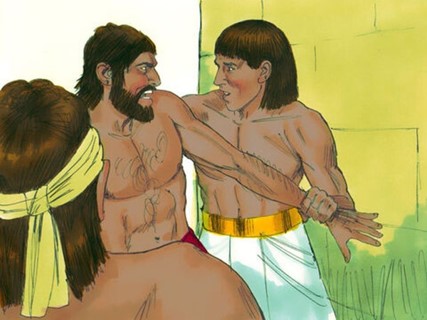
But the man in the wrong pushed Moses aside. ‘Who made you a ruler and judge over us?’ he asked. ‘Are you going to kill me as you killed that Egyptian yesterday?’ When Moses heard that, he fled the country and lived as an exile in the land of Midian.
Moses was taught all the wisdom of the Egyptians, and he was powerful in both speech and action because Moses was a prince in Egypt. Thus, Moses relied on his might, strength, and leadership to free the Israelites, leading to a miserable catastrophic failure.
Then God rebuilt Moses from scratch till Moses became such a humble man to do God’s monumental task, seemingly impossible and unachievable to human eyes. It was the source of Moses’ incredible humility before God.
Even so, Moses was not completely void of human nature. In executing God’s command, Moses always wanted to see his lifelong dream coming true. However, as God predicted, it never came, and Pharaoh repetitively hardened his heart. What a disappointing moment!
Then what’s the secret? God loved and cared for Moses and did not let Moses alone. God was always with Moses. As Moses prayed to God, God answered, which made Moses keep going although he had gone through yet another failed attempt to release his fellow Israelites from the bondage of slavery in Egypt.
God also steadily revealed his deep secret about why God repeatedly gave such contradicting and seemingly impossible requests coming with failure. Then Moses slowly and steadily realized that all he had to go through were not just a confrontation between him and Pharaoh but sure progress of God’s plan. It was to make Him known throughout the world, including all people in Egypt, and, most of all, let thousands of generations to come as His children know what God had done to them with God’s special love and care for them.
God loved and protected Moses and the Israelites, His beloved children. Then God let the three plagues fall on the Israelites and the Egyptians. And both experience God’s awesome judgment and the pains associated with it.
Pharaoh immediately resisted by bringing in his magicians. And his magicians could duplicate the first and second plagues, but when the third plague came, Pharaoh’s magicians could not do anything but scream
“This is the finger of God!” (Exodus 8:19a)

How about the Israelites? Why should the Israelites experience the same plagues and pains? Were the plagues only for the Egyptians?
Without darkness, can we truly know light and fully appreciate the true value of light? If so, will we as loving parents give our children light only? Then will our children be able to appreciate light truly? The hard truth is to appreciate light our children have to experience darkness.
Then what will we do as loving parents? Will we give light only? Or let our children experience darkness in a controlled environment under our care? Surely, we will let our children experience darkness under our care and love. God did the same to the Israelites. The Israelites suffered just like the Egyptians.
What God did to the Israelites explains many of the life questions we have when we see God’s children having the same pains and hardships on earth as the others. If so, we must remember: that God carefully watches over us amid our pains and hardships. People might see no difference at all between us and the others, but people cannot see God’s infinite love and care for His children under all circumstances. Second, it is God’s way (i.e., the loving parent’s way as described above) to grow us deeply into Him while truly appreciating God’s blessings and love for us. Again we truly appreciate light after experiencing darkness. This precious experience cannot be substituted by reading a book, hearing a story, or watching a movie.
“Rome wasn’t built in a day.” So is our faith in God. Yes, in a split second, we become His children by faith, but being mature in faith takes time.
And it is also true that how we are mature in Him is different. God set the training period and the degree of maturity that God desires. For example, it took 80 years to make Moses one who could be infinitely obedient and humble to God. If anyone of us truly desires to be like Moses, please pray to God and expect to have a special walk with God throughout our entire life. But do not fear God’s special guidance like Moses. We highly encourage all to desire to be like Moses. After all, it could be the best desire in our prayer, which surely pleases God.
After going through nine plagues and the disappointments associated with the negative outcomes, Moses was still faithful to God. He was ready to do yet another God’s command.
God came to Moses, and said to Moses,
“I will strike Pharaoh and the land of Egypt with one more blow. After that, Pharaoh will let you leave this country. In fact, he will be so eager to get rid of you that he will force you all to leave.” (Exodus 11:1)
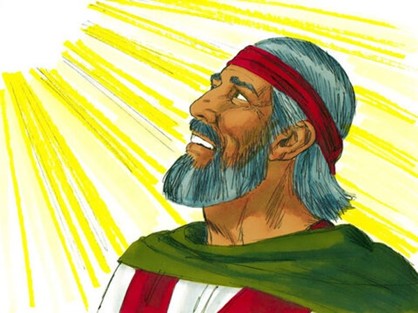
God had prepared the 10th plague, and it was the last plague before freeing the Israelites enslaved in Egypt. Amazingly God predicted a complete inversion of Pharaoh’s position. Pharaoh had already refused nine times to send away the Israelites by hardening his heart, but this time, he would be eager to get rid of the Israelites and forced all the Israelites to leave. Finally, Moses heard what he liked to hear from God.
Moses could not believe what he heard. He had to endure, and he followed through with God’s command nine times. Moses did all for God without missing even one beat, although Moses, as a human being, was not happy about the outcomes that God predicted even before he went to Pharaoh. Hearing God’s final plague plan, Moses realized his patience and absolute obedience were paid off. From now on, God would lead Moses and his fellow Israelites through his paths of righteousness as God made His solemn covenant with the ancestors. Moses gave his greatest thanksgiving to God.
God continued,
“Tell all the Israelite men and women to ask their Egyptian neighbors for articles of silver and gold.” (Exodus 11:2)
It was music to Moses’ ears: God’s proclamation of the new world order. The Israelites were slaves in Egypt for four hundred years and had to obey whatever the Egyptians said. The Israelites had no right to ask their Egyptians for anything. However, God said to ask for articles of silver and gold, precious things to the Egyptians. Can we imagine a world where salves ask their enslaver for silver or gold? Then would their enslaver gladly give gold or silver? No. It will never happen. But God instructed Moses to tell the Israelites to ask the Egyptians for gold, silvers, and other precious things.
How could it be possible? God had already prepared. God had caused the Egyptians to look favorably on the people of Israel. And Moses was considered a very great man in the land of Egypt, respected by Pharaoh’s officials and the Egyptian people alike. If a popularity poll was taken in Egypt, Moses was far ahead of Pharaoh, making Pharaoh madly angry.
Moses joyfully went to Pharaoh. For the first time, he heard from God. God would free the Israelites using God’s tenth plagues. Yes, it was the tenth command from God. At the same time, Moses vividly remembered what Pharaoh said to him at the last meeting with Pharaoh.
“Get out of here!” Pharaoh shouted at Moses. “I’m warning you. Never come back to see me again! The day you see my face, you will die!” (Exodus 10:28)
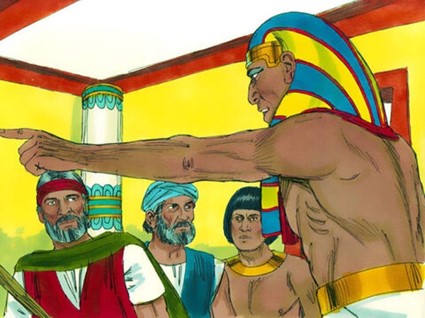
At the last meeting, Moses received a death threat from Pharaoh. The death threat was not a light one. Pharaoh was the most powerful person in the world at that time, and Pharaoh really meant it. Pharaoh was sick and tied to Moses, who kept coming and bringing an unacceptable God’s command – releasing all the Israelites enslaved in Egypt, which was completely unacceptable. Egypt needed the Israelites. Pharaoh finally decided to get rid of Moses so that he would hear any more from Moses.
Knowing the death threat, Moses gladly went to Pharaoh’s palace in faith of God’s command. The palace guards were commanded by Pharaoh to capture Moses so that he could kill Moses. Thus, they were fully ready to arrest Moses as soon as they saw Moses. However, when they saw Moses, they could not do anything to Moses. Moses’ face was filled with God’s spirit, which overpowered them. Thus, rather than arresting Moses, they politely opened the massive gate and led Moses to Pharaoh.
Pharaoh did not expect to see Moses again, who was truly a pain of neck to him, who always brought God’s same unacceptable request and follow-on plagues. Pharaoh thought, “Why didn’t the palace guard arrest Moses as I commanded? They just politely bring Moses to me.” Pharaoh was agitated, but he could not do anything at that time. His word should be a law, but it was certainly not happening. The palace guards had no sign of being afraid of Pharaoh or feeling guilty for not obeying his order.
Pharaoh was thinking hard about what to do next to Moses and the disobedient palace guards. He knew he always had options; the best option was to kill both Moses and the palace guards. Then it will be an example to the rest of the people in his palace and his kingdom, Egypt. Pharaoh then looked at Moses’ face, but it was not the ordinary Moses’ face that he used to see. Moses’ face was filled with God’s spirit, which strongly overpowered him. Pharaoh couldn’t do anything either. He remained on his throne.
As Moses approached Pharaoh, Pharaoh let Moses speak. Then Moses had announced what God told Moses,
“This is what the LORD says: At midnight tonight I will pass through the heart of Egypt. All the firstborn sons will die in every family in Egypt, from the oldest son of Pharaoh, who sits on his throne, to the oldest son of his lowliest servant girl who grinds the flour. Even the firstborn of all the livestock will die. Then a loud wail will rise throughout the land of Egypt, a wail like no one has heard before or will ever hear again.” (Exodus 11:4b-6)
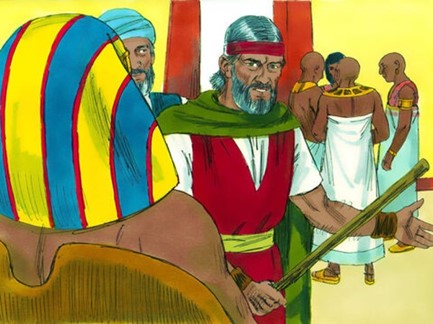
What a fearful message to Pharaoh! At midnight tonight, all the firstborn sons would die. Even his oldest son would not be spared. He would die with all the firstborns of the rest of the families in his kingdom, Egypt. It was an unthinkable message. How could all firstborns in his kingdom die together at once at midnight? Pharaoh gave a thought, “Is it even possible? But if it happens, it will be a real disaster for all. I cannot even imagine losing my own son. It will be same for all of my people in Egypt. Yes, all wail like me. The wail in this nation will be like no one has heard before. It will be truly a tragic day. Again will it really happen? So far, whatever Moses said to me was all coming true. I cannot believe what I hear, but it might really happen.” He kept debating to himself.
Pharaoh looked at Moses again, and Moses still stood tall before him. Then Moses continued delivering God’s message,
“But among the Israelites it will be so peaceful that not even a dog will bark. Then you will know that the LORD makes a distinction between the Egyptians and the Israelites. All the officials of Egypt will run to me and fall to the ground before me. ‘Please leave!’ they will beg. ‘Hurry! And take all your followers with you.’ Only then will I go!” (Exodus 11:7-8)
Pharaoh heard yet another shocking message. The plague would be only for his people, the Egyptians, not for the Israelites. Deaths of the firstborns would be everywhere, but none in the Israelites. They would lose their firstborns. For them, midnight was so peaceful that even a dog would not bark. Yes, it was an unbelievable message from God given through Moses.
Finally, Pharaoh heard a clear message from God through Moses about why God made a distinction between the Egyptians and the Israelites. God is the true God and much more powerful than Pharaoh, who pretended a god in Egypt among the Egyptians. All living persons in his kingdom would see the power of God, and beg. And God’s name would be glorified, and God’s servant, Moses, be lifted high. Pharaoh was the king of Egypt, but it would be no more. Pharaoh, all the officials of Egypt, and the rest of the Egyptians would run to Moses, God’s servant, and fall to the ground.
It was crystal clear to Moses. God was about to use Moses to lead his fellow Israelites and leave Egypt. Pharaoh, the officials, and the ordinary Egyptians would voluntarily support the departure and provide all good things, including gold and silver. God prepared, and God would do what He planned.
Moses then stood tall and walked out from Pharaoh confidently in faith in God. No matter what Pharaoh would do, God would surely fulfill His solemn promise made to his ancestor, him, his current generation, and thousands of generations to come. Moses gave all his praises and thanksgivings to God, and God went with Moses. Moses became anxious to see what God would do next. Moses again patiently waited for God’s detailed instructions on how to leave Egypt with his fellow Israelites.
Moses faithfully endured nine times, and at the tenth time, God finally revealed His plan to rescue the Israelites enslaved in Egypt. Rescuing the two million Israelites was a monumental task, and the monumental task required Moses’ extraordinary faith, patience, and humility before God. Rome was not built in a day, and Moses took 80 years to become one who was the most humble and obedient person to do God’s monumental task.
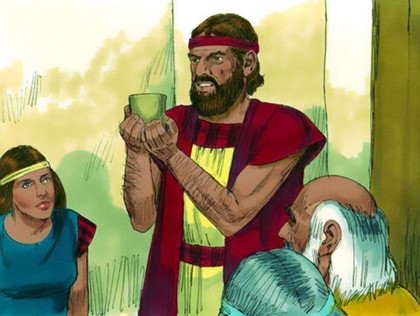
What do we learn from Moses? We should be patient and humble before God by keeping obedient to God, which is how God shapes us. Some might have a desire to do a monumental task of God as Moses did. Please continue praying to God for His faith and courage to go through with patience and humility before God.
Most of us might not become like Moses, but surely will be a small Moses where we live. Then we will lead and guide those who suffer to God, who will give comfort and peace by being faithful to and trusting in God. As God was always with Moses, He will always be with us and pour His love. God will guide us together with those who suffer through the paths of righteousness. Let’s not forget to be patient and humble before God always. We might not see any change or even a sign of change immediately, but God isn’t really being slow about his promise, as some people think. No, He is diligently and faithfully working behind the scene with His unfathomable love for our sake.
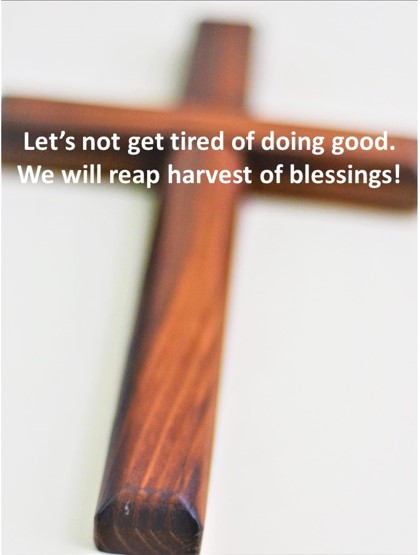
In a wealthy home some utensils are made of gold and silver, and some are made of wood and clay. The expensive utensils are used for special occasions, and the cheap ones are for everyday use. If you keep yourself pure, you will be a special utensil for honorable use. Your life will be clean, and you will be ready for the Master to use you for every good work. (2 Timothy 2:20-21)
